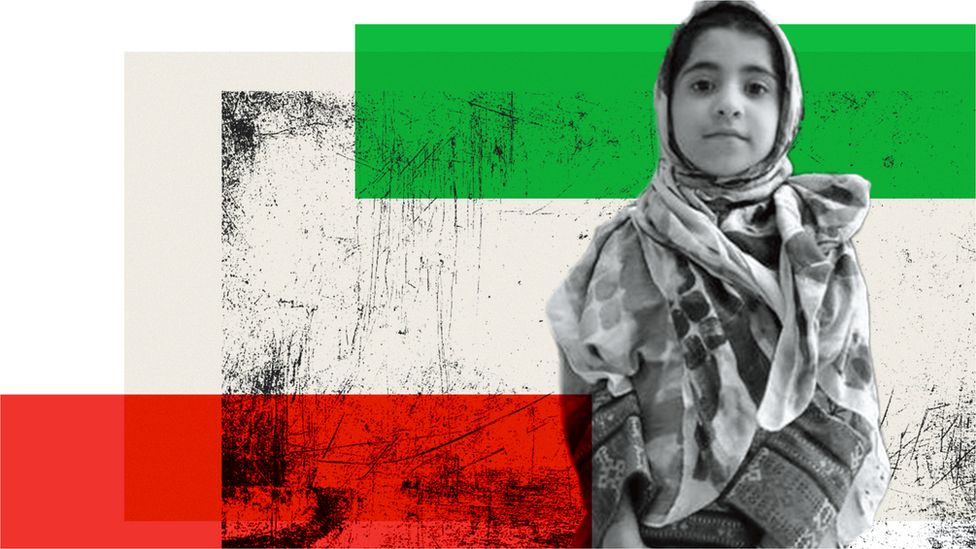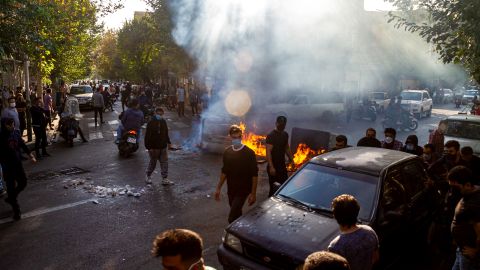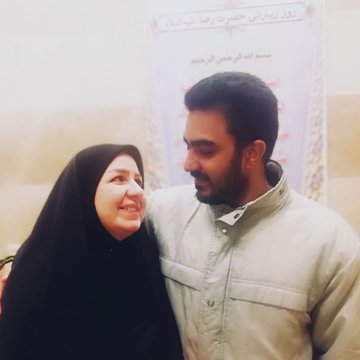"Waging War Against God"
 |
| 7-year-old Hasti Narouei was also from the Baluch community. This picture shows her wearing a traditional Baluchi dress. According to local activists, Hasti was hit on her head by a tear gas canister. She suffocated. HAALVSH |
The
public furor over the murder of a young Kurdish woman arrested by
Iran's Morality Police for what they construed as a moral offence when
she wore her hijab too loosely, revealing a few strands of hair, led to a
courageous uprising in Iran's Kurdish geography that rapidly spread in
moral indignation and numbers until every major city in the country
hosted its own protests against the human rights abuses that the
theocracy forced on its people in the name of the faith of Shi'ite
Islam.
In
efforts to speedily put down the growing insurrection where enraged
Iranians called for "Death to Khamenei" and the end of the Islamic
Republic, the Basij, an arm of the Islamic Revolutionary Guard Corps
was tasked to counter the protestors using any means useful to the
purpose. Predictably, this has led to unrestrained brutality on the part
of the Basij, motorcycle-driving 'police', not known for gentle
remonstration. Close to 500 people have been killed while protesting so
far, by the Iranian Security Police.
Two
days ago Iran executed a second prisoner who was convicted for crimes
they claim were committed during protests challenging the theocracy. He
was publicly hung from a construction crane. A grim medieval punishment
meant to give warning to all other protestors that this could be their
fate as well. Majidreza Rahnavard's execution followed a month after he
was charged of the fatal stabbing of two members of the Basij
paramilitary.
Speedy
'trials' followed by the death penalty obviously considered an
effective method of cooling the ardour of the public in its attempts to
unseat the ruling theocracy. According to Iranian activists, a dozen
people, perhaps more, have already been sentenced to death at
closed-door hearings. 488 people have been killed since the
demonstrations broke the complacency of the Ayatollahs in mid-September.
Authorioties have placed another 18,200 people in detention.
The
Mizan news agency under the country's judiciary influence, published
images of Rahnavard hanging from the crane, hands and feet bound, black
bag covering his head. In front of concrete and metal barriers to hold
back a gathered crowd, masked security force members stood guard early
Monday morning in the city of Mashhad, a Shi'ite holy city located east
of Tehran.
The
hanged protestor, according to the newspaper, had stabbed two security
force members to death in Mashhad, wounding four others. State
television aired footage of a man chasing another around a street corner
then standing over him and stbbing him after he fell agains a
motorbike. Another video showed the same man stabbing another in quick
succession with the assailant finally fleeing. State TV iterates the man
with the knife was Rahnavard.
The
dead men were identified in the Mizan report as "student" Basij, the
paramilitary volunteers deployed in major cities, attacking and
detaining protesters who have been resisting and fighting back. After
Majidreza Rahnavard's execution, state television showed him in the
courtroom where he declares his hatred for the Basijis following video
clips he had seen on social media of the forces beating and killing
protesters.
Activists
speak of Mashhad of hosting strikes, of shops closed and demonstrations
that began over the death in custody on September 15 of 22-year-old
Mahsa Amini. Rahnavard was convicted in Mashhad's Revolutionary Court,
tribunals that have been criticized internationally for disallowing
those on trial to have their own lawyers, much less see the evidence
against them. Rahnavard was convicted of 'moharebeh', meaning "waging war against God".
"[The public execution of a young man so soon after his arrest indicated] a significant escalation of the level of violence against protesters.""Rahnavard was sentenced to death based on coerced confessions, after a grossly unfair process and a show trial.This crime must be met with serious consequences for the Islamic republic.""[There is] a serious risk of mass execution of protesters [as thousands were in custody]."Mahmood Amiry-Moghaddam, director, Iran Human Rights, Oslo, Norway
 |
| Iranians protest the death of Mahsa Amini after she was detained by the morality police last month, in Tehran, on October 27. Stringer/Middle East Images/File |
Labels: Arrests, Executions, Islamic Republic of Iran Murderous Tyranny, Protests


<< Home